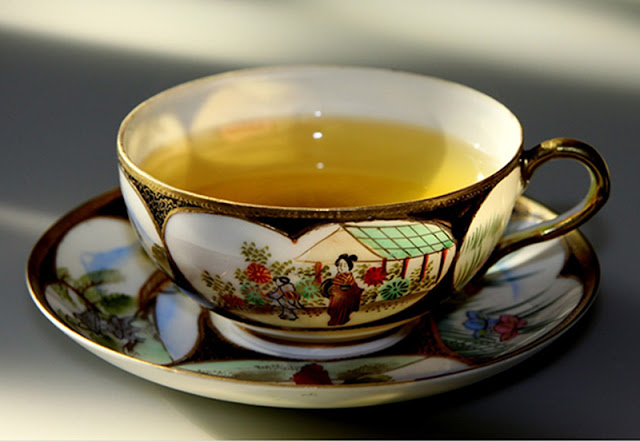Many studies have suggested that you should drink green tea for a healthy heart. With its well-documented health benefits, green tea is more than just a refreshment. A great many studies in different parts of the world have investigated possible links between green tea and cardiovascular disease.
A recent study in Japan found that a few cups of green tea each day may lower the risk of heart disease or stroke.
The National Cancer Center in Japan reported on May, 2015 that a study of 90,000 adults aged 40-69 years suggests that regular consumption of green tea may lower the risk of dying from heart or cerebrovascular diseases.Tea - originating in China remains the most consumed beverage in the world after water. The history of tea dates back more than 4,000 years. The most important book on tea was written in China in 600 AD. The book titled Cha Jing (Tea Classic), written by Lu Yu remains an important document for an insight into the country which introduced tea to the world. In 1191, Zen priest Eisai wrote a book called Kissa Yojoki (Book of Tea). The book describes the shapes of tea plants, leaves and flowers, how regular consumption of green tea may affect five vital organs, and how to grow and process tea leaves.
Green tea, according to legend, was first brewed in 2737 BC during the reign of Emperor Shennong. Made from Camellia sinensis leaves, green tea undergoes minimal oxidation during processing.
Population-based studies implies that green tea’s antioxidant properties may help prevent atherosclerosis – hardening and narrowing of the arteries caused by plaque build-up.
Researchers believe green tea lowers cholesterol and triglyceride levels, thereby reducing the risk of heart disease. They say drinking 3 cups of tea per day decreases the chance of heart attack by 11%. However, the U.S. Food and Drug Administration (FDA) would not allow green tea manufacturers to use labels claiming green tea reduces heard disease risk.
You should drink green tea for a healthy heart because, tests on animal and people have shown that green tea lowers total cholesterol and raises HDL (good cholesterol). In one population-based clinical study, it was found that men who drank green tea were more likely to have lower cholesterol compared to those who did not drink green tea.
 |
| Green tea mojito |
A Japanese study suggests that you should drink green tea for a healthy heart. According to a study published in the Journal of the American Medical Association (JAMA), in 2006, green tea consumption can lower mortality due to all causes, including cardiovascular disease.
The study conducted in Japan in 1994 followed 40,530 adults for 11 years.
The study found that those who drank at least 5 cups of green tea daily, lowered their risk of death from heart attack by 26% and lowered the risk of death from all causes by 16%, compared to those who drank less than a cup of green tea a day.
An apple a day and green tea for a healthy heart
Researchers from the Institute of Food Research (IFR), led by Dr. Paul Kroon found when green tea works in combination with apples, they produce unique amount of polyphenols, which blocks a signaling molecule called Vascular Endothelial Growth Factor (VEGF). In our body, VEGF causes blood vessels to form a process called angiogenesis, which advances cancer. Angiogenesis is also responsible for causing atherosclerosis and ruptured plaques that lead to heart attack and stroke. They suggest, you eat apple and drink green tea for a healthy heart.
This was the first time researchers had been able to directly turn off VEGF using foods rich in polyphenols. By using low dosages of polyphenols from green tea and apples, they were able to completely stop VEGF from turning on.
What is heart failure and why should you take green tea for a healthy heart?
The coronary arteries in the heart provide heart muscles with the much needed supply of oxygen-rich blood. In people with coronary artery disease, fat, protein and calcium build-up within the arteries form plaques, which prevent blood from flowing properly. Each year in the US, about 735,000 people have a heart attack and 610,000 people die of heart disease making it the leading cause of death in Americans.
In the UK, there are approx. 124,000 heart attacks each year. Around 82,000 people die of heart disease mostly caused by heart attacks.
As part of a healthy lifestyle, drinking green tea daily may help keep our heart healthy. Countless population health studies conducted across the globe suggest we should regularly drink green tea for a healthy heart.















